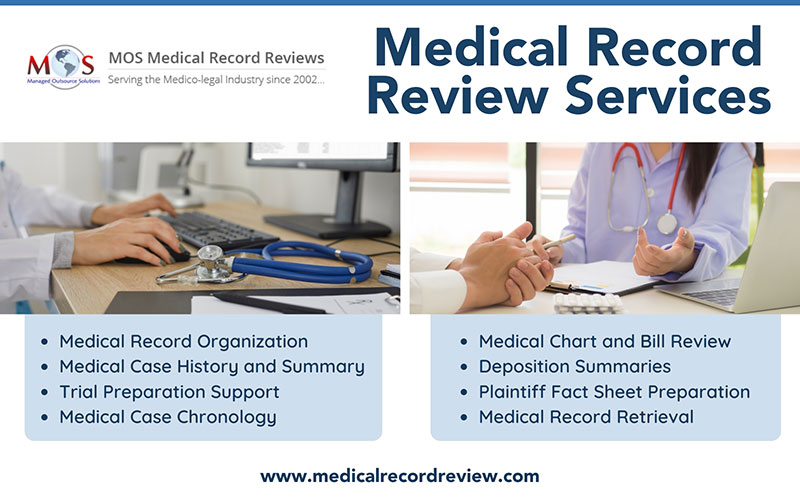In the medico-legal sector, accurate medical record review processes are crucial, not only for providers to ensure optimal patient care and regulatory compliance, but also for attorneys and insurance companies.
By understanding the complete medical picture of the claimant in a lawsuit, attorneys can develop better strategies and make informed decisions about settlements or litigation. Insurance companies can use this review highlights, mainly to determine the extent of their coverage and make informed payout decisions. A thorough review ensures all relevant details are identified and interpreted correctly. This helps ensure fair compensation for patients with valid claims and prevents the risk of fraudulent claims for insurers.
Simplify your medical record review process!
Key Techniques for Accurate Medical Record Review
Accurate review of medical documentation is essential to gather reliable information for legal cases or assessments of claims. Here are some key techniques for reviewers to ensure accuracy:
- Comprehensive review: Thoroughly review all relevant medical documents, including patient histories, physician notes, diagnostic reports, treatment plans, and progress notes. This provides a complete picture of the patient’s medical journey.
- Attention to detail: Pay close attention to dates, timelines, and sequence of events documented in the medical records. Ensure accuracy in documenting medical conditions, treatments administered, and outcomes observed.
- Medical terminology understanding: Familiarize yourself with medical terminology and abbreviations commonly used in healthcare records. This helps in understanding the records and the clinical significance of findings better.
- Verification and cross-referencing: Verify information across multiple sources within the medical records to ensure consistency and reliability. Cross-reference findings with diagnostic tests, imaging results, and specialist consultations for validation.
- Identify gaps and inconsistencies: Identify any gaps or inconsistencies in the medical records that may require clarification or further investigation. Address differences by seeking additional information or consulting medical experts as needed.
- Legal relevance assessment: Evaluate the relevance of medical information to the legal case or insurance claim. Focus on documenting medical evidence that supports or counters claims, impacts liability assessments, or influences settlement negotiations.
- Consultation with medical experts: Seek input from medical experts or consultants to interpret complex medical issues, assess causation, or provide expert opinions based on the medical records reviewed.
- Adherence to privacy and confidentiality: Adhere strictly to privacy laws and regulations (such as HIPAA in the United States) when handling medical records to protect patient confidentiality and maintain ethical standards.
Above all, it is important for reviewers to maintain clear and organized documentation of findings from the medical record review process. Prepare concise reports or summaries highlighting key medical facts, interpretations, and implications for the legal or insurance context.
Check out this infographic on “Medical Records Summary – Dos And Don’ts”
By employing these techniques, attorneys and insurance professionals or their reviewing staff can conduct thorough and accurate medical record reviews that support informed decision-making and enhance the integrity of legal proceedings or claims assessments.
Partner with the Right Medical Record Review Company
Professional medical record review companies act as a powerful supporter for both lawyers and insurers. They update the complex process of analyzing medical records, offering significant advantages such as:
- Services from trained professionals
- Increased accuracy and objectivity
- Cost-effective services
Outsourcing medical record review can be significantly cheaper than having lawyers or in-house staff handle the task. With professional support, legal teams can focus on core competencies and help insurers control operational costs.
Our medical review services ensure clarity and precision.
Trust our experts to streamline your review process.





